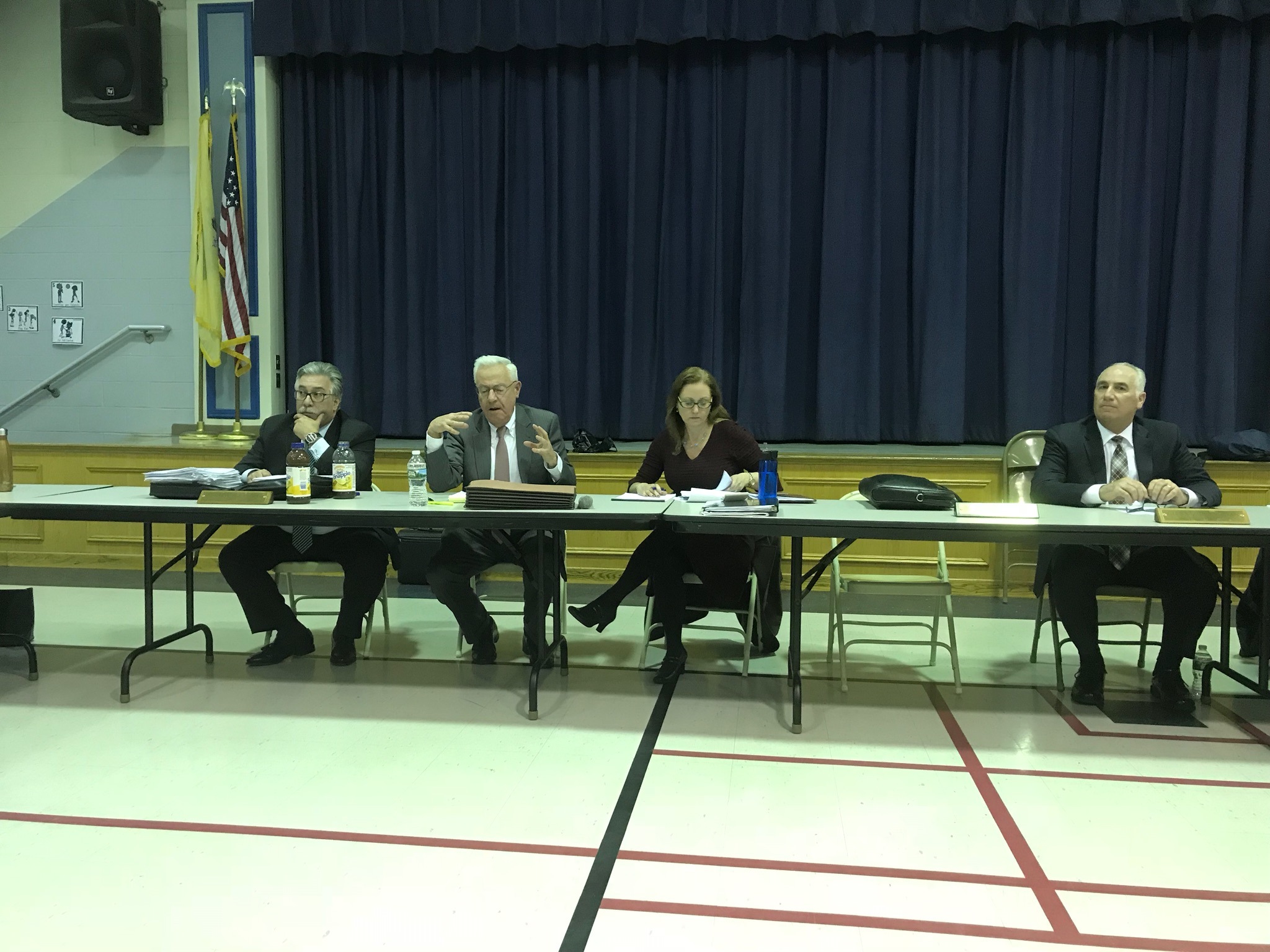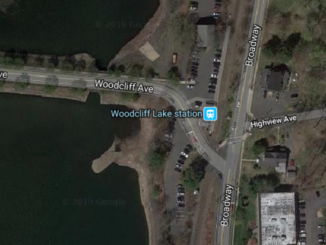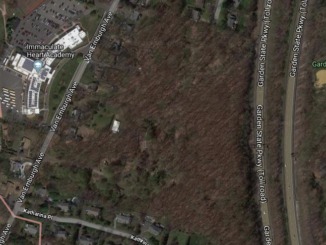
BY MICHAEL OLOHAN
OF NORTHERN VALLEY PRESS
HAWORTH, N.J.—Within six weeks, the Borough of Haworth must settle its affordable housing plan or risk being taken to court to settle an affordable housing obligation that it has been negotiating since July 2015.
Following 18 extensions of immunity over nearly four years, Haworth faces an April 30 deadline in Superior Court, Hackensack, to submit an affordable housing settlement or face a court trial to determine its affordable housing obligations through 2025.
Without a settlement by late April, the borough faces possible loss of immunity against a so-called “builder’s remedy” lawsuit which may allow a builder to build higher-density multifamily housing to satisfy the borough’s affordable housing obligation.
In July 2015, the borough filed a declaratory judgment to seek legal immunity from a builder’s lawsuit, and ever since has been in negotiation to calculate and settle its affordable housing obligation through 2025.
At a two-hour-plus meeting March 12 before nearly 100 residents at Haworth Public School, the borough’s attorney, planner, mayor and several council members laid out what the borough was doing to satisfy its affordable housing obligations—currently being negotiated in Superior Court—and its hopes to avoid trial.
‘Fair Share’ of housing
Over its nearly four-year negotiation, Regan noted that Fair Share Housing Center proposed an obligation of 307 affordable units, an independent consulting firm proposed 223 units, and Haworth’s 2015 Fair Share Plan proposed an 85-unit obligation.
On March 12, Borough Attorney Robert Regan said he did not believe the final negotiated number would be as high as 85, adding negotiations are ongoing. Both Regan and the borough planner, Caroline Z. Reiter, provided information about possible affordable housing options and offered clues to a possible affordable housing settlement.
The town-wide community meeting was called initially for Feb. 12 but cancelled due to inclement weather.
Following the meeting, Mayor Thomas Ference advised residents to continue following the issue, check the borough website for updates “and listen to what is happening.”
Regan said at a case conference earlier that day Superior Court Judge Christine Farrington said she wanted to hear from all parties involved—the borough, Fair Share Housing Center, and an attorney for Lakeshore Developers, LLC (owners of Schaefer’s Gardens property)—before the April 30 court deadline.
Regan said she said that if a settlement is not complete, she is likely to set a summer trial date.

No ‘builder’s remedy’ suits
“I guarantee you that if we did not do that [declaratory judgment] route and get protection from the court, Schaefer’s Gardens and others would have filed ‘builder’s remedy’ lawsuits. You would have had land use and zoning chaos in this town,” said Regan.
Regan said the borough is “cautiously optimistic” that a settlement will be resolved before April 30. He said statewide 330 towns submitted declaratory judgements in 2015 to begin a court-mediated process to settle affordable housing obligations, and 260 municipalities have settled.
‘Best plan for us’
Councilman Andrew Rosenberg said the borough will submit “what we believe is the best plan for us that can get passed and get us out of this. Reasonableness is in the eye of the beholder and I don’t think anybody up here thinks any of this is being reasonable. But we are again, working to submit the best plan for the borough that at the same time is accepted by a group of people that the borough doesn’t control,” he added.
Ference, who also served nearly three decades on the Planning Board, said the time allowed by participating in the court-mandated affordable housing process led to a better affordable housing settlement. He said the lower densities being permitted at Schaefer’s Gardens—seven units per acre versus 25 units initially requested by another developer—are much more in line with Haworth.
“As Bob [Regan] says, you understand, ‘we wouldn’t have done this on our own…,” said Ference, noting the state created policies and laws that the borough must follow.
Councilman Glenn Poosikian said the borough has worked to protect Haworth and its residents throughout the affordable housing litigation process.
“We have been fighting Fair Share’s demands since we filed suit,” Poosikian said. “As we sit here as council people and as the mayor we also have your exact same concerns. We live in this town. We don’t want it to change. We don’t want our schools to have to be affected. It’s a tough decision we are all faced with and it’s not going to be a good decision. It’s not going to be something that’s acceptable to everyone.”
Poosikian noted only two towns statewide have gone to trial against Fair Share Housing to settle affordable housing obligations “and the results have been disastrous. They’ve not only accepted Fair Share’s number, but they’ve endorsed it,” he noted.
“Maybe a deal is not rolling over. Maybe a deal is taking the destiny of your town and putting it under your own control and that’s the way you have to look at it,” Poosikian said.
Several times during the meeting both Regan and Reiter—the planner who wrote Haworth’s affordable housing plan—noted that should a town lose court immunity, often the town may lose control of all its zoning powers, which are assigned to a special master who oversees all zoning decisions.
‘Without altering Haworth’
Regan said Haworth’s mayor and council has tried to meet the affordable housing mandate “without altering Haworth’s residential character…that has been the focal point of every decision this mayor and council have made,” he said.
Regan said in 2016 the purchaser of Schaefer’s Gardens’ 5.65 acres petitioned the court to participate in Haworth’s declaratory judgment to build affordable housing.
Regan said then-developer DCH Schaefer’s Gardens, proposed 125 units for the site or 25 units per acre, which was not acceptable to the borough. The new owner/developer, Lakeshore Developers, has met with all parties and is recommending 41 housing units, including 32 market-rate units and nine units of affordable housing, Regan said. He said development of Schaefer’s Gardens is anticipated due to its inclusion in the settlement plan.
Proposed components
Reiter described proposed options for settling Haworth’s affordable obligations through 2025, noting it is not yet finalized.
She said “anticipated components” of a settlement plan include 41 units at Schaefer’s Gardens, including nine affordable units.
Other affordable housing options include a potential municipal project at borough property on Massachusetts Avenue from the gas station to St. Luke’s Church or a borough-owned property on Terrace Street.
No decision has been made on what possible borough property would be included at this time, she said.
Reiter said another part of the plan includes an affordable accessory-apartment ordinance proposed for implementation along county roads, such as Schraalenburgh Road and Hardenburgh Avenue.
An “accessory apartment program” would create a self-contained residential dwelling within an existing home, she said.
Another possible component includes an overlay zone that would allow creation of 18 affordable second-story apartments in the Business Zone, also known as Zone D. She said that would permit “mixed-use” downtown with retail on the first floor.
According to Haworth’s Fair Share Plan, both programs could be assisted by funds from the borough’s Affordable Housing Trust Fund, including up to $10,000 per accessory apartment development and installation.
In addition, the plan states funds may be used for developing second-story affordable units and subsidizing property owners to supplement rental income. As of Feb. 22, the borough had $355,601 in the trust fund.
The plan originally included six new bedrooms for developmentally disabled adults at Spectrum For Living, which currently has six bedrooms.
Reiter said the driving range property at White Beeches Country Club, presently part of the borough’s prior affordable plans, is zoned with an overlay that permits six units per acre and that density may be increased. No mention is included about other parts of the golf course.
‘Mediation and discussion’
“The final components would all come about from the mediation and discussion,” Reiter added.
Regan said should Haworth settle its obligations, all future developments that consist of five or more units at a density of six or more units per acre must include a 15 percent set-aside for rentals and 20 percent for for-sale units.
Several residents suggested that the borough should exclude any property on Massachusetts Avenue as the wooded area may contain protected species and should have been protected as part of the state’s Green Acres program.
Regan said the special master and Fair Share regularly mention the Massachusetts Avenue property as a potential for future affordable units.
Other residents said portions of Schaefer’s Gardens’ 5.65-acre property contain a pond as well as wetlands which are prone to flooding and disagreed with Fair Share Housing estimates that used the entire acreage for calculating developable property.
Another resident said the borough should have preserved the Massachusetts Avenue property for a park and “missed the boat.”
Several residents also wondered if a nearby borough police range would affect marketability of units at Schaefer’s Gardens.
A few residents questioned whether taxes would increase as a result of a possible settlement, which was not addressed.
After a few questions about possible increases in school children, taxes and “a capital expenditure plan…for supporting 100 families” with additional police and fire protection, Regan said such concerns do not figure into any future court decision on affordable obligations.
“That’s not part of our role or the process…and will have no issue in ultimately determining what the town’s obligation is,” he said.
“Whether it’s zero dollars or a million dollars it’s not going to matter…to the people making decisions,” Regan said.



